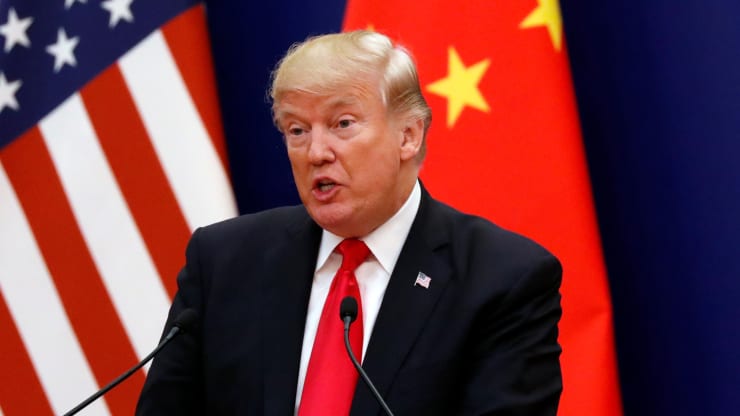
Barring an unlikely agreement or a presidential tweet, it will soon be 15% more expensive for U.S. companies to import everything from milk to diapers to sports equipment from China.
Tariffs on $112 billion of Chinese goods are set to go into effect at midnight ET. While some duties have been delayed and some items have been removed from the original list of $300 billion Chinese imports, many everyday grocery items and household staples will still be targeted beginning Sunday, according to an official list that spans 122 pages.
Chinese retaliatory tariffs ranging from 5% to 10% on a portion of $75 billion U.S. goods also are scheduled to go into effect Sunday.
The newest round of tariffs on Chinese goods are consumer-focused and will cost the average American household $1,000 a year, J.P. Morgan estimated. More than 160 industry groups have condemned new tariffs on China and the escalation of the trade war. Furthermore, over 30% of US companies are blaming tariffs for disappointing second quarter profits, according a Wells Fargo analysis.
Yet, President Donald Trump claimed “badly run and weak companies” are blaming his tariffs on China for difficulties they face.
Trump has threatened higher punitive duties after this round of tit-for-tat tariffs, but China softened its stance this week, saying it’s willing to resolve the trade war with a “calm attitude” and indicating it won’t retaliate immediately.
The president said the two sides had trade talks on Thursday “at a different level,” but no details were released from the White House on the discussion. The two countries are also set to meet face to face in early September in Washington.
The trade battle between the world’s two largest economies has dragged on for more than a year and a half. China appears to be playing the long game, accelerating efforts to reduce its reliance on the U.S. while strengthening its domestic market.
























